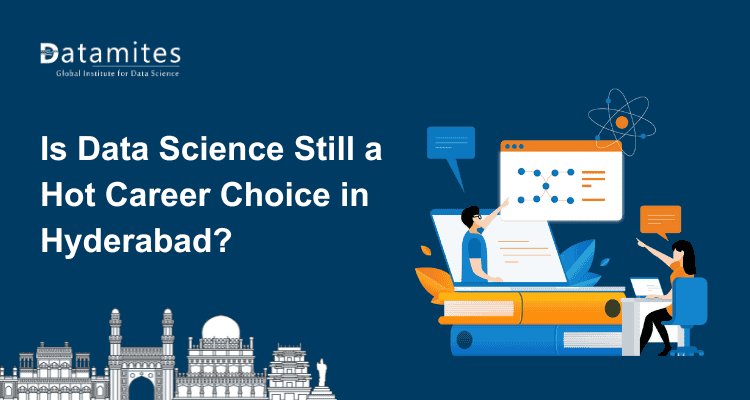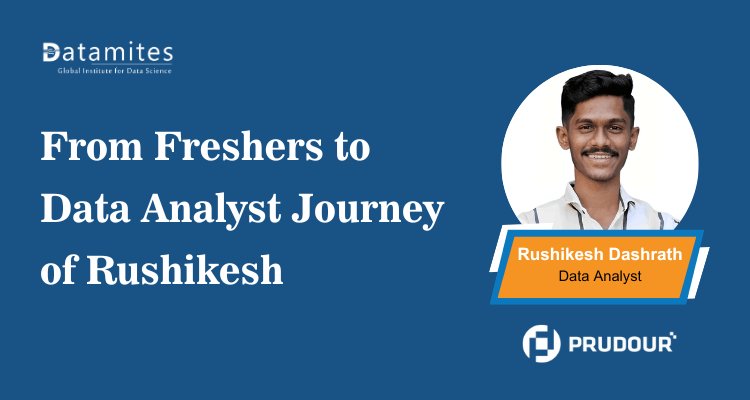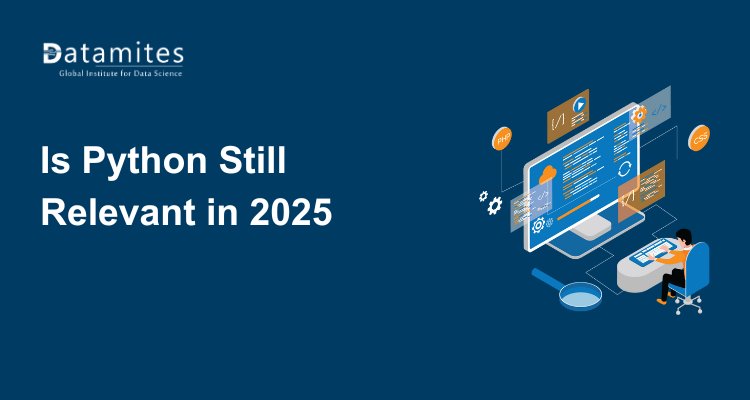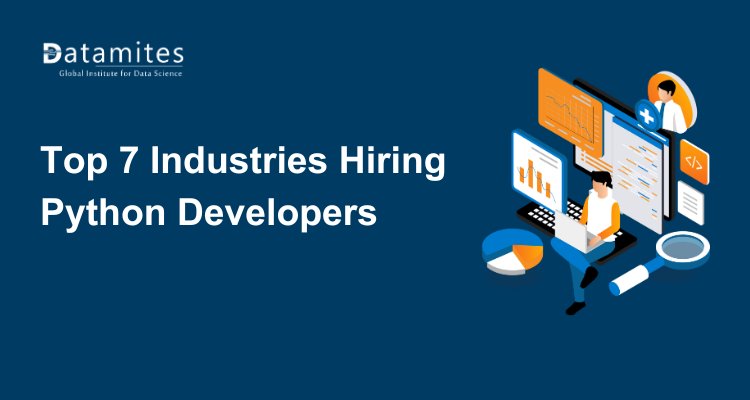How Generative AI is Changing the Role of Data Scientists
Generative AI is transforming the role of data scientists by automating routine tasks like data cleaning and model generation. This shift allows data scientists to focus more on strategy, innovation, and ethical decision-making.
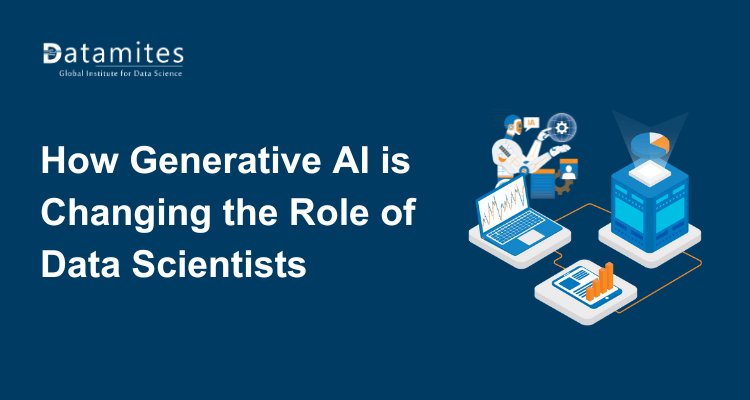
The field of data science has never stood still. From descriptive analytics to predictive modeling, data scientists have continuously evolved with advancing technology. But now, a new paradigm shift is upon us—Generative AI. As large language models, diffusion models, and generative adversarial networks (GANs) take center stage, the role of data scientists is being transformed in unprecedented ways.
Once seen purely as analytical problem-solvers, data scientists are now expected to collaborate with and even build AI tools for data scientists, enabling faster decision-making, content creation, model generation, and more. This evolution is redefining career paths in data science and altering how professionals are trained through every course, especially those offered by top-tier data science training institutes.
In this blog, we’ll explore what Generative AI really is, how it’s impacting daily workflows, the new skills in data science needed to thrive, and how this technology is reshaping the future of data science as a discipline.
What is Generative AI? A Quick Primer
Generative AI refers to a class of machine learning models that can produce new content—text, images, audio, code, or even synthetic data—based on patterns learned from large datasets. Tools like OpenAI’s ChatGPT, Google’s Gemini, and Stability AI’s Stable Diffusion are popular examples.
At its core, Generative AI is built on deep learning architectures such as:
- Transformer models for text and code generation
- GANs for creating synthetic images and video
- Variational Autoencoders (VAEs) for creative design and content personalization
The integration of Generative AI into data science tools is altering how models are trained, optimized, and deployed. As a result, today’s data science training not only includes traditional machine learning but also modules on prompt engineering, ethical AI, and model interpretability.
Refer these articles:
- Is Data Science Getting Saturated? Here's the Truth
- What Recruiters Look for in Data Science Resumes
- The Rise of Freelance Data Scientists
The Impact of Generative AI on Data Science Workflows
Generative AI has streamlined and automated multiple parts of the data science workflow, including:
Data Preparation and Cleaning
Data wrangling once consumed up to 80% of a data scientist’s time. Today, AI tools for data scientists can automatically detect anomalies, clean inconsistent values, and suggest schema optimizations.
Code Generation and Automation
Generative AI tools like GitHub Copilot or ChatGPT can write entire Python scripts or SQL queries from natural language prompts. This reduces development time, allowing data scientists to focus on strategy and experimentation.
Synthetic Data Generation
Data privacy laws and lack of quality training data often stall projects. Generative AI can create synthetic datasets that preserve statistical properties without exposing sensitive information—paving the way for more secure, scalable applications of data science.
Model Explainability and Reporting
Generative AI can auto-generate documentation, business reports, and model explanations—tasks that are often tedious but crucial for stakeholder alignment.
As a result, those enrolled in an offline data science course focused on analytics and AI must now be equipped with the knowledge to use, manage, and evaluate these GenAI-powered systems.
Emerging Skills Data Scientists Must Master in the Age of GenAI
With automation handling many repetitive tasks, the emphasis is shifting towards higher-order skills in data science, such as:
- Prompt Engineering: Crafting effective queries to extract accurate and useful responses from language models
- Ethical AI and Bias Mitigation: Understanding the implications of generated outputs and ensuring fairness and transparency.
- Interdisciplinary Collaboration: Bridging gaps between domain experts, software developers, and decision-makers using AI-generated insights.
- Tool Proficiency: Familiarity with platforms like Hugging Face, LangChain, and AutoML pipelines is becoming essential.
To stay competitive, many professionals are pursuing specialized programs that integrate Generative AI modules, offered by leading data science institutes worldwide. This shift is reflected in the global data science platform market, which reached USD 15.2 billion in 2024. According to IMARC Group, the market is expected to grow to USD 144.9 billion by 2033, at a CAGR of 27.08% from 2025–2033, driven by the increasing demand for professionals who can navigate both data and AI models effectively.
Refer these articles:
Real-World Applications: How Data Scientists Are Using Generative AI
The applications of data science powered by GenAI are already creating waves across sectors:
Healthcare and Medicine
Generative AI is revolutionizing healthcare by creating synthetic medical data that can be used to train machine learning models without compromising patient privacy. Additionally, AI models are being used to generate drug compounds, simulate biological processes, and predict potential treatment outcomes.
Finance and Risk Management
In finance, generative AI is being used to simulate market scenarios and assess potential risks. By generating synthetic financial data, data scientists can develop more robust risk models and identify vulnerabilities in investment portfolios. This can be especially valuable in volatile markets.
Marketing and Personalization
Generative AI allows businesses to create personalized content for customers at scale. By generating customized advertisements, product recommendations, and even personalized emails, businesses can enhance customer engagement and improve conversion rates.
Content Creation and Media
Generative AI is transforming content creation in industries like entertainment, journalism, and marketing. From generating articles and social media posts to producing artwork and music, data scientists are using AI models to automate content creation processes and expand creative possibilities.
In one case, a data science team at a leading fintech firm used a combination of traditional modeling and a generative AI chatbot to summarize millions of customer reviews, identifying hidden patterns that led to a 15% improvement in customer satisfaction.
Professionals who receive training from a reputable program are more likely to gain exposure to real-world projects and the latest trends in the field. This is why enrolling in an offline data science course or hybrid course that includes hands-on experience with GenAI tools is becoming increasingly valuable.
The Future Landscape: What’s Next for Data Science in the GenAI Age?
As Generative AI continues to evolve, the future of data science will likely include:
Hyper-Automated Analytics
From data ingestion to reporting, many analytics workflows will become fully automated, shifting the role of data scientists to supervisory and strategic positions.
Democratization of Data Science
With natural language interfaces and no-code platforms, more non-technical users will engage in data-driven decision-making. Data scientists must therefore adapt as facilitators and educators.
Creative Problem-Solving Over Technical Rigor
Rather than just technical know-how, skills in data science will emphasize critical thinking, storytelling, and ethical design of AI systems.
Niche Specializations
New roles will emerge: GenAI Prompt Engineers, AI Ethics Specialists, and Synthetic Data Architects—creating a wider scope of data science roles and expanding a career in data science opportunities.
This transformation underscores the need for continuous learning. The best data science institutes are already tailoring their data science training programs to prepare students for this new reality.
Refer these articles:
Generative AI is not just a trend—it’s a turning point. It’s revolutionizing workflows, redefining roles, and opening up entirely new applications of data science across industries. As AI takes over repetitive tasks, data scientists must pivot toward more strategic, ethical, and creative responsibilities.
If you're looking to start a career in data science, consider enrolling in data science offline training in Bangalore, Hyderabad, Pune, Chennai, Ahmedabad, Coimbatore, Mumbai, Kolkata, and Delhi, or choose flexible online courses. Opting for a reputable training provider that offers hands-on learning, internship opportunities, and placement support can give you a competitive advantage in this rapidly evolving field.
DataMites Institute, recognized among India’s Top 20 AI Institutes by Analytics India Magazine (AIM), are highly regarded alongside IIT and IIM for offering top-notch training in data science, AI, machine learning, and analytics. Their industry-recognized programs, including Certified Data Scientist courses, come with certifications from IABAC and NASSCOM FutureSkills, real-world project experience, and job placement assistance.
For those who prefer classroom-based learning, DataMites offers offline data science classes in Pune, Bangalore, Hyderabad, Chennai, Ahmedabad, Coimbatore, and Mumbai. They also provide online courses for global learners. Whether you're just starting or a working professional, DataMites ensures a career-focused curriculum aligned with industry needs.
As AI, automation, and real-time data management continue to shape the future of data science, staying current through training programs in key tech hubs like Bangalore is crucial for staying competitive in this high-demand field. Now is the ideal time to invest in a data science course in Chennai, or any major city. Ready to unlock new career opportunities? Enroll in a data science course with placement support in Bangalore and take the first step toward an exciting future.
Whether you're a beginner or a professional staying up-to-date with trends, it's time to adapt. Enrolling in a course that includes Generative AI is crucial to staying ahead. The demand for data science professionals is high, but expectations are evolving. By updating your skills and embracing Generative AI, you can future-proof your career and thrive in this new era of data science. If you're ready to advance your career, choose a course that prepares you for both current challenges and the future shaped by Generative AI.

